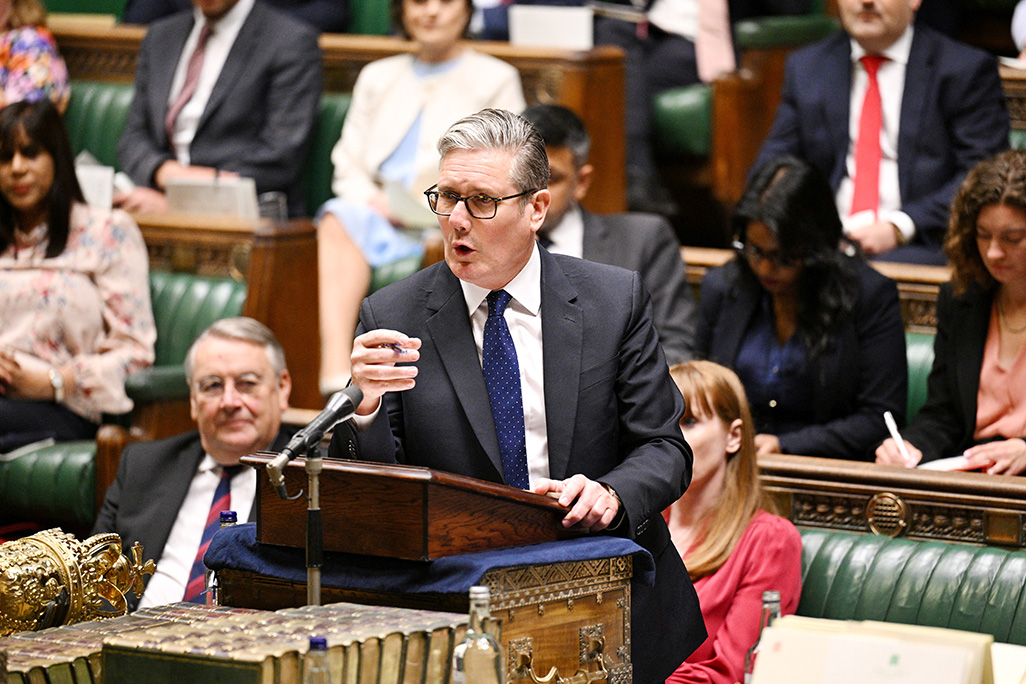British Prime Minister Keir Starmer sharply scaled back planned welfare cuts on Friday to quell a rebellion by lawmakers in his governing Labour Party, the latest U-turn to dent his authority just a year after winning power.
Planned changes to make it tougher to collect some disability and sickness benefits would now apply only to new applicants, while the millions of people who already rely on the benefits will no longer be affected, the government said.
More than 100 Labour lawmakers had publicly opposed Starmer’s reforms, which sought to shave five billion pounds per year off a rapidly rising welfare bill.
The revolt had meant Starmer faced a potential defeat in a vote on the changes in parliament next week – a year after he won a landslide majority in a national election.
“We have listened to MPs (members of parliament) who support the principle of reform but are worried about the pace of change for those already supported by the system,” a spokesperson for Starmer’s office said.
In a letter to lawmakers, work and pensions minister Liz Kendall confirmed that only new claimants would be subject to the planned tightening of eligibility.
“Our reform principles remain; to target funding for those most in need and make sure the system is sustainable for the future to support generations to come,” Kendall said.
Labour lawmaker Meg Hillier, who chairs an influential parliamentary committee and had spearheaded the efforts to water down the bill, welcomed the government’s move as “a good and workable compromise”.
U-TURN
The government did not set out the cost of the change in policy. Care minister Stephen Kinnock said that details would come in the next budget, which is due in the autumn.
Ruth Curtice, chief executive of think tank Resolution Foundation and a former senior finance ministry official, said the compromise would reduce the government’s savings by around 3 billion pounds a year of the original planned 5 billion.
A spokesperson for Starmer said details of the plan would be set out before the vote on Tuesday, but “these changes will be fully funded, there will be no permanent increase in borrowing”. The spokesperson declined to comment on possible tax rises.
It was the third big U-turn for Starmer’s government, following a reversal in unpopular cuts to payments to pensioners for fuel to heat homes in the winter, and a decision to hold an inquiry into the authorities’ response to gangs that groomed girls for sex, after having said no such inquiry was needed.
Starmer has argued that Britain’s disability benefits system is too costly to sustain, and makes it too difficult for people who can work to do so, by penalising them for their earnings.
Campaigners said that even if existing claimants are exempt, the changes would still harm too many people. Disability UK, a charity, said it rejected a “two-tier system” that would deny new claimants benefits that existing claimants can receive.
“It is not a massive concession to have a benefit system where future generations of disabled people receive less support than disabled people today,” said Mikey Erhardt, the group’s policy lead.
The opposition Conservative Party’s work and pensions policy chief, Helen Whately, said the decision was humiliating for Starmer, and represented a missed opportunity to cut the welfare bill.
“Starmer ducked the challenge – leaving taxpayers to pick up the bill,” she said in a post on X.
Annual spending on incapacity and disability benefits already exceeds Britain’s defence budget and is set to top 100 billion pounds by 2030, according to official forecasts, up from 65 billion pounds now.
But the plans to cut payments to some of the most vulnerable in society have proven particularly painful for lawmakers in the centre-left Labour Party, which founded the state-run National Health Service and sees itself as the protector of the welfare state built after World War Two.
Despite Starmer’s concessions, one Labour lawmaker, Peter Lamb, said he would still vote down the bill “alone” if necessary.
“To me, it’s insufficient when better options have repeatedly been put forward and ignored,” Lamb said on X.






Click here to change your cookie preferences